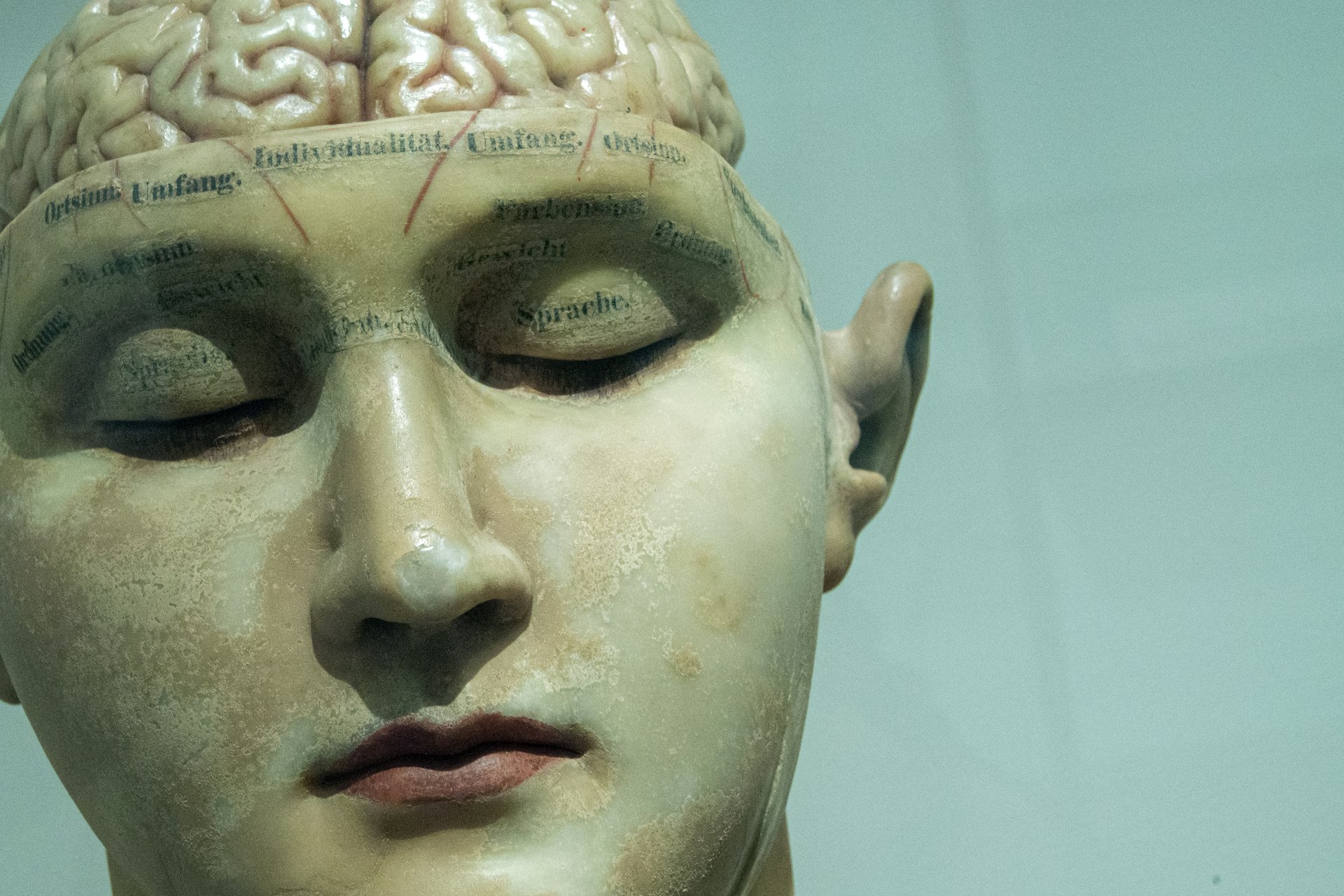The Future of Neurotechnology: Transforming Mental Health Care in the Next Decade


Photo by David Matos on Unsplash
The Next Wave in Mental Health: How Neurotechnology is Shaping the Future
Neurotechnology is rapidly reimagining the landscape of mental health treatment, offering new hope for individuals struggling with complex conditions. As we move into 2025 and beyond, advances in brain-computer interfaces, AI-driven diagnostics, wearable monitoring devices, and non-invasive brain stimulation are bringing personalized, effective care within reach for more people than ever before. This article dives deep into emerging neurotechnologies, practical ways to access them, and the challenges and opportunities ahead for patients and providers alike.
Understanding Neurotechnology in Mental Health
Neurotechnology refers to tools and techniques that directly interact with the brain or nervous system to monitor, assess, or influence mental health. These include wearable sensors, AI-powered platforms, brain stimulation devices, and digital therapies. While some of these technologies are already FDA-approved and in use, others are on the cusp of mainstream adoption as research and regulatory pathways accelerate their development [3] .
Breakthrough Innovations in Neurotech for Mental Health
1. Non-Invasive Brain Stimulation
One of the most promising advances is
deep Transcranial Magnetic Stimulation (dTMS)
, which uses electromagnetic fields to stimulate targeted brain regions associated with depression, anxiety, and other disorders. dTMS has become an FDA-approved, non-invasive option for treatment-resistant depression, and ongoing research is expanding its applications to substance use disorders and other challenging conditions
[3]
. Patients interested in dTMS should consult with licensed mental health professionals or look for clinics accredited by organizations such as the American Psychiatric Association.
2. Wearable Devices and Real-Time Brain Monitoring Wearable neurotech-like smart rings, wristbands, and EEG headsets-can monitor heart rate variability, sleep patterns, and stress markers. These devices detect early signs of distress, enabling timely interventions and more personalized care plans. Companies at the forefront of wearable mental health tech are introducing devices that not only track biometrics but also offer feedback and coping strategies [1] . To access such technology, consumers can research verified products from established health tech brands and consult mental health providers for recommendations.
3. AI-Driven Diagnostics and Therapy Artificial intelligence is transforming therapy with digital mental health platforms, AI chatbots, and virtual assistants. These systems deliver 24/7 support, personalized therapy exercises, and even AI-guided cognitive behavioral therapy (CBT). Some telepsychiatry platforms now integrate AI to help clinicians better understand patient progress and recommend tailored interventions [2] . When seeking these services, individuals are advised to research platforms endorsed by reputable medical associations or to ask their mental health provider for a list of vetted digital therapy tools.
4. Virtual Reality (VR) for Immersive Therapy VR-based therapies allow patients to confront traumatic memories, phobias, or anxieties in controlled, immersive environments. This is particularly effective for post-traumatic stress disorder (PTSD) and anxiety disorders, providing a safe space for exposure therapy under professional guidance. With the growth of VR and integration of biofeedback, these tools are expected to become a mainstream adjunct to traditional therapy [1] . Access typically requires working with a clinician trained in VR therapy or exploring clinical trials at leading universities.
5. Brain-Computer Interfaces and Neural Implants In recent years, brain-computer interfaces (BCI) and neural implants have moved from the realm of science fiction to early clinical trials. For example, FDA-approved studies like Neuralink’s human trials are exploring implants that can restore basic motor function or vision [5] . While invasive brain surgery is not a mainstream treatment for mental health at this time, future advancements could make non-surgical neural stimulation more accessible. Those interested in these therapies should monitor announcements from recognized research institutions and the U.S. Food and Drug Administration for updates on clinical trials and approvals.
Personalization: The Next Frontier
Advances in genetic testing and pharmacogenomics are allowing psychiatrists to tailor medication and therapy to an individual’s unique genetic profile. This means more effective treatments, fewer side effects, and faster relief for many patients. Although not all providers offer genetic testing for psychiatric medications, patients may inquire with large medical centers or academic psychiatry departments about availability [2] .
How to Access Emerging Neurotechnologies
Accessing these new treatments varies by technology and geography, but here are some practical steps:
- Consult with a licensed psychiatrist or neurologist to discuss eligibility for advanced treatments like dTMS or neurofeedback. Ask about FDA-approved devices and clinic accreditation.
- For wearable neurotechnology, research products with published clinical validation and reviews from reputable medical journals. Avoid unproven devices and check with your provider before use.
- To try AI-powered therapy platforms, seek services endorsed by national psychiatric organizations or included in insurance networks for added protection and quality assurance.
- For VR therapy, locate clinics or university-based programs with experience in immersive therapy for your specific diagnosis. Participation may depend on ongoing clinical trials or availability of trained therapists.
- To learn about neural implants or BCI research, follow official updates from the U.S. Food and Drug Administration or major research hospitals.
If you are unsure where to begin, consider searching for “neuromodulation clinics near me,” “FDA-approved dTMS providers,” or “digital mental health therapy platforms” via your preferred search engine. Alternatively, ask your primary care physician or mental health specialist for referrals to the latest neurotechnology resources.
Challenges and Cautions
Despite the immense promise, there are challenges to consider. Not all neurotechnologies are widely available, and insurance coverage may vary. Some treatments are still in the experimental stage, requiring enrollment in clinical trials. It is crucial to evaluate the credentials of providers, the scientific backing for any device or platform, and the privacy practices of digital health services. If you encounter a new technology, verify its FDA approval status and look for published research in peer-reviewed journals. If you need further support, contact your local medical board or consumer protection agency for guidance.

Photo by Robina Weermeijer on Unsplash
Alternative and Complementary Approaches
For those not ready or eligible for advanced neurotechnologies, traditional therapies, medication management, and lifestyle interventions remain foundational. Many digital platforms offer hybrid approaches, integrating neurotechnology with talk therapy, mindfulness training, and peer support. It is often beneficial to combine new tools with established care under the guidance of a licensed professional. Always discuss major treatment changes with your care team to ensure safety and continuity of care.
Key Takeaways and Next Steps
The future of mental health treatment is being shaped by neurotechnology-offering new hope for conditions once considered untreatable. Innovations like dTMS, wearable brain monitors, AI-guided therapy, and VR-based exposure therapy are expanding the toolkit for patients and clinicians. While not every technology is mainstream yet, many are accessible through qualified providers, academic centers, and ongoing clinical research. To explore these options:
- Speak with your healthcare provider about emerging neurotechnology treatments
- Search for accredited clinics and FDA-approved devices
- Follow developments from reputable organizations and government agencies
- Consider enrolling in clinical trials if eligible
As neurotechnology evolves, the possibilities for more effective, personalized, and accessible mental health care will continue to grow. Stay informed, ask questions, and work with professionals to find the best path for your individual needs.
References
- [1] WorthyMind Practice (2025). Top Mental Health Innovations to Watch in 2025.
- [2] Phoenix Pointe Psychiatry (2025). The Future of Mental Health: Emerging Technology in 2025.
- [3] PlusAPN (2025). The Future of Neurotechnology in Mental Health.
- [5] We Will Cure (2025). Neurotech Steps into the Spotlight at CES 2025.






